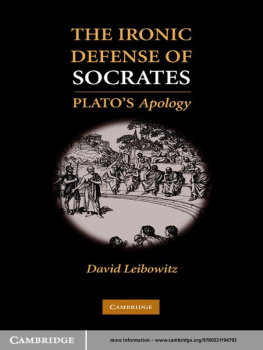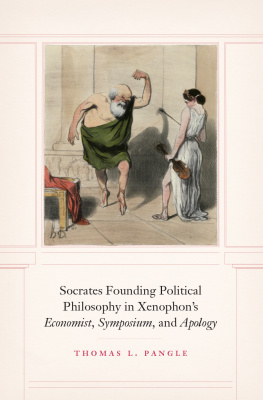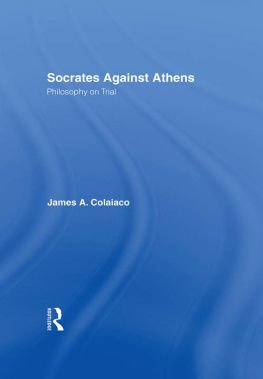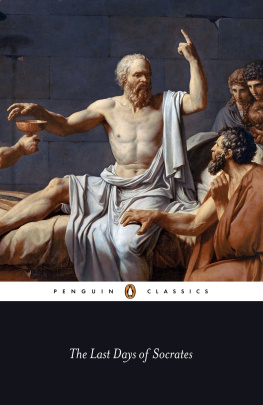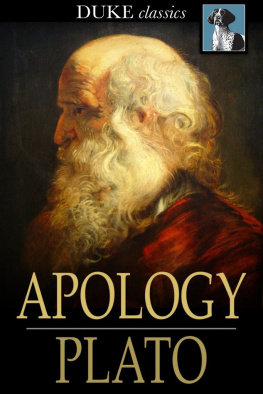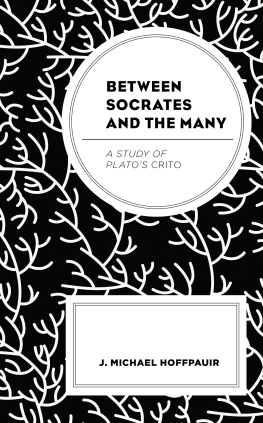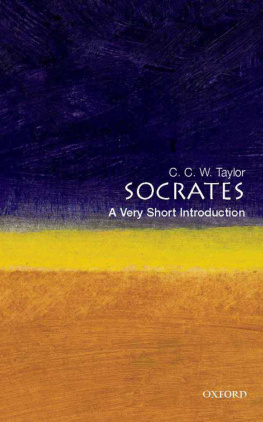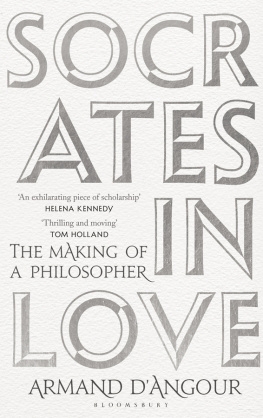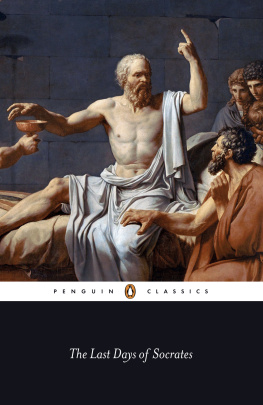The Ironic Defense of Socrates
Plato's Apology
This book offers a controversial new interpretation of Plato's Apology of Socrates . By paying unusually close attention to what Socrates indicates about the meaning and extent of his irony, David Leibowitz arrives at unconventional conclusions about Socrates teaching on virtue, politics, and the gods; the significance of his famous turn from natural philosophy to political philosophy; and the purpose of his insolent defense speech. Leibowitz shows that Socrates is not just a colorful and quirky figure from the distant past but an unrivaled guide to the good life the thoughtful life who is as relevant today as he was in ancient Athens. On the basis of his fresh understanding of the dialogue as a whole, and of the Delphic oracle story in particular, Leibowitz also attempts to show that the Apology is the key to the Platonic corpus, indicating how many of the disparate themes and apparently contradictory conclusions of the other dialogues fit together.
David Leibowitz is Assistant Professor of Political Science at Kenyon College and has also taught at Michigan State University and the University of Toronto. He received his Ph.D. from Harvard University.
CAMBRIDGE UNIVERSITY PRESS
Cambridge, New York, Melbourne, Madrid, Cape Town, Singapore, So Paulo, Delhi, Dubai, Tokyo, Mexico City
Cambridge University Press 32 Avenue of the Americas, New York , NY 10013-2473, USA
www.cambridge.org
Information on this title: www.cambridge.org/9780521194792
David Leibowitz 2010
This publication is in copyright. Subject to statutory exception and to the provisions of relevant collective licensing agreements, no reproduction of any part may take place without the written permission of Cambridge University Press.
First published 2010
Printed in the United States of America
A catalog record for this publication is available from the British Library.
Library of Congress Cataloging in Publication Data
Leibowitz, David M., 1954
The ironic defense of Socrates : Platos apology / David M. Leibowitz.
p. cm.
Includes bibliographical references and index.
ISBN 978-0-521-19479-2 (hardback) 1. Plato. Apology. 2. Socrates Trials, litigation, etc. 3. Socrates Political and social views. I. Title.
PA4279.A8L45 2010
184dc22 2010020719
ISBN 978-0-521-19479-2 Hardback
Cambridge University Press has no responsibility for the persistence or accuracy of URLs for external or third-party Internet Web sites referred to in this publication and does not guarantee that any content on such Web sites is, or will remain, accurate or appropriate.
To my parents, who inspired my love of learning, and to Lisa, c.j.o.s.l.
Acknowledgments
I am grateful to the Lynde and Harry Bradley Foundation, the Mrs. Giles Whiting Foundation, and Kenyon College for the financial support that made this book possible. I am also grateful to my many friends and teachers who contributed to making the book much better than it would have been, though not as good as it would be if I had been able to respond adequately to all of their generous criticisms. I would especially like to thank Thomas L. Pangle, whose boundless intellectual energy, wealth of knowledge, and magnanimity benefited me in ways too numerous to catalogue; Arthur Melzer and Jerry Weinberger, whose incisive questions and heroic assistance were invaluable; Fred Baumann, whose profound insights into the reality principle proved essential; and Robert Goldberg, whose eye-opening conversations with me about the central topics in this book began during our late-night drives back in high school. Harvey C. Mansfield and Werner J. Dannhauser offered very helpful suggestions for improving the manuscript, as did the anonymous readers for Cambridge University Press. I received much sage advice from Lewis Bateman, my editor at Cambridge, and from his assistants, Emily Spangler and Anne Lovering Rounds, and much help in preparing the final text from Barbara Folsom and Holly Johnson. My understanding of Plato in general, and of the Apology of Socrates in particular, owes more than I can say to the classes and writings of Christopher Bruell and Leo Strauss.
My greatest debt is to my wife, my partner in all things, for as the ancients held, philosophy is a way of life.
Introduction
There is nearly universal agreement that Plato's Apology of Socrates is a seminal work in philosophy and political theory, as interesting to lay readers as to scholars, and new books on it appear every few years. But why another? What justification can there be for offering yet one more commentary on this dialogue that has been commentaried almost to death? My defense is that by paying unusually close attention to what Socrates indicates about the meaning and extent of his irony, I have arrived at unconventional conclusions about his teaching on virtue, politics, and the gods, the significance of his famous turn from natural philosophy to political philosophy, and the purpose of his insolent defense speech. My primary intention is to show that Plato's Socrates is not just a colorful and quirky figure from the distant past, but an unrivaled guide to the good life the thoughtful life who is as relevant today as he was in ancient Athens. On the basis of my understanding of the dialogue as a whole, and of the Delphic oracle story in particular, I also attempt to show that the Apology is the key to the Platonic corpus, indicating how many of the disparate themes and apparently contradictory conclusions of the other dialogues fit together.
Title and Preliminary Considerations
The Importance and Puzzling Character of the Apology of Socrates
Thirty-five Platonic dialogues have come down to us as genuine. In various ways, then, Plato encourages the reader to have high expectations about what he or she will learn from the Apology .
These expectations, however, are not fulfilled in a straightforward manner. To some degree this is concealed by the dialogues effect on most readers. It is hard not to be exhilarated, even thrilled, by Socrates elevated and uncompromising words, words that convey a strong impression of his dignity, his courage, his devotion to the god and to the Athenians, and his serenity in adversity.
Now precisely if knowledge of virtue is as important as Socrates keeps saying or implying, his own life must have been a great disappointment. To borrow an image from the Republic , he is a prospector who never struck gold (336e49). What is worse, he suggests that the failure is not his alone: by calling his wisdom human wisdom, he seems to imply that no greater wisdom is possible for human beings. In fact, he says explicitly that knowledge of virtue would be some superhuman wisdom, and not only does he not possess it himself, he has been unable, despite a most painstaking search, to find anyone who does (20b45, 20d9e2, 21a47, 21e522a1, 22e623b4). But our beliefs about virtue about what is just or admirable guide us. They are the basis of our self-respect, and perhaps ultimately of our hopes for happiness (cf. 41c8d2). If Socrates is correct, however, these beliefs are unfounded; they cannot withstand examination; they are all just so many boasts. Everyone is in the dark about how to live. And if so, isnt it cause for despair? Is this what Plato offers through the mouth of Socrates, then a counsel of despair?

